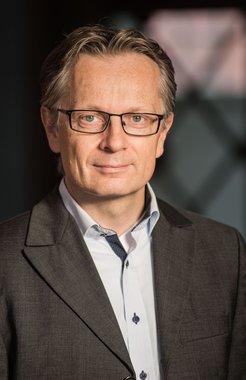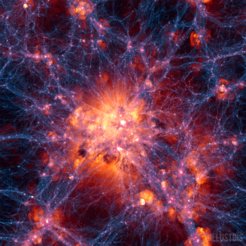Volker Springel elected Foreign Member of the US NAS

The National Academy of Sciences is a private, nonprofit institution that was established under a congressional charter signed by President Abraham Lincoln in 1863. It recognizes achievement in science by election to membership, and—with the National Academy of Engineering and the National Academy of Medicine—provides science, engineering, and health policy advice to the federal government and other organizations. Current NAS membership totals approximately 2,400 members and 500 foreign associates; approximately 500 current and deceased members of the NAS have won Nobel Prizes. The Proceedings of the National Academy of Sciences, founded in 1914, is a well-established international journal publishing the results of original research.
The research interest of newly elected Foreign Member Volker Springel is in computational astrophysics, where he pioneered large-scale cosmological simulations with the famous Millennium Simulation in 2005. His research focusses on the fields of cosmology and computational astrophysics, with an emphasis on galaxy formation and the large-scale structure of the Universe. He also studies gas dynamics in the intergalactic and interstellar media, the formation of stars and supermassive black holes, the structure and dynamics of dark matter halos, and works on constraining dark energy.

Volker Springel received his PhD in 2000 from the Ludwig-Maximilian University in Munich, after studies of physics at the University of Tübingen and the University of California at Berkeley. After doing a postdoc at the Harvard Center for Astrophysics, he became a postdoc and then in 2005 group leader in computational cosmology at MPA. In 2010, he was appointed professor for Theoretical Astrophysics at Heidelberg University and became research group leader at the Heidelberg Institute for Theoretical Studies (HITS) before returning to MPA as director in 2017.
Springel has received numerous awards and honours, among them in 2000 the Otto Hahn-Medal from the Max Planck Society, in 2004 the Heinz Maier-Leibnitz-Award of the Deutsche Forschungsgemeinschaft, in 2005 the International Media Award for Science and Art and in 2009 the Klung-Wilhelmy-Weberbank Prize for Physics. In 2006, he was elected into the "Eleven for Science" by the Stifterverband für die Deutsche Wissenschaft, from 2006 to 2011, he was member of the Young Academy at the Berlin-Brandenburg Academy of Sciences and the National Academy of Sciences Leopoldina, and in 2016 became Member of the National Academy of Sciences Leopoldina.

